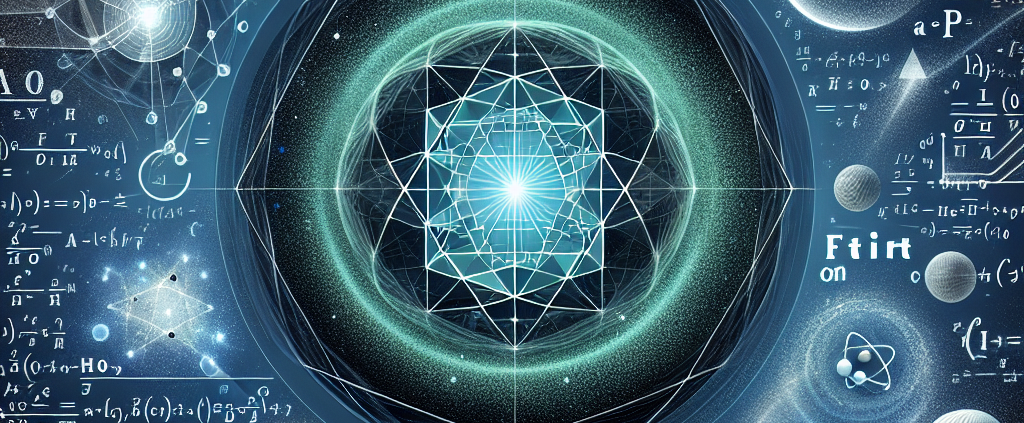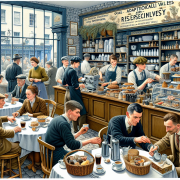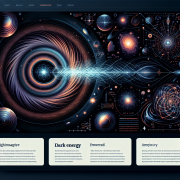Delving into Arithmetic Quantum Field Theory’s Role in Mathematics and Physics
Exploring the Frontiers of Mathematics and Quantum Field Theory
Recently, I had the opportunity to reflect upon the ongoing programs and series of lectures that intertwine the realms of mathematics and quantum field theory, realms that I have been deeply passionate about throughout my career. It’s fascinating to observe the convergence of arithmetic, geometry, and Quantum Field Theory (QFT) at renowned institutions such as Harvard’s Center for Mathematical Sciences and Applications (CMSA) and internationally at the IHES and the Max Planck Institute. The discourse and dissemination of new ideas within these fields underscore the importance of foundational research and its potential applications in understanding the universe at a fundamental level.
The Intersection of Arithmetic Quantum Field Theory at Harvard’s CMSA
The program on Arithmetic Quantum Field Theory that commenced this week at Harvard’s CMSA is a beacon for scholars like myself, who are intrigued by the intricate ways mathematical principles underpin the physical world. Esteemed scholars Minhyong Kim, Brian Williams, and David Ben-Zvi lead a series of introductory talks, laying the groundwork for what promises to be a significant contribution to our understanding of QFT. The decision to make videos and/or notes of these talks available is a commendable step towards fostering a wider academic engagement, allowing those of us not physically present to partake in the learning experience.
Innovations in Geometry and Arithmetic at IHES and Max Planck Institute
The recent conclusion of the Clausen-Scholze joint course on analytic stacks at the IHES and the Max Planck Institute marks a momentous occasion in the study of spaces and geometry. The insights from this course offer groundbreaking perspectives on both arithmetic and conventional real or complex geometry contexts. While the material is admittedly technical, the enthusiasm and preciseness with which Scholze and Clausen convey these concepts are both inspiring and illuminating.
Among the various applications of these new foundational ideas, the one that particularly captures my attention is Scholze’s ambition to extend the work on local Langlands and geometric Langlands to the realm of real Lie groups. This endeavor not only highlights the depth and complexity of mathematical theories but also exemplifies the perpetual quest for knowledge that defines our scientific pursuit.
Anticipating Future Breakthroughs
Looking forward, the potential for these Clausen-Scholze theories to influence the ongoing discussions at the CMSA about the intersections between QFT, arithmetic, and geometry is immense. As someone who has dedicated a significant portion of my professional life exploring and consulting in the field of Artificial Intelligence, the parallels between these abstract mathematical concepts and the algorithms that drive AI innovation are both compelling and instructive. The methodologies that underlie our understanding of the universe and its fundamental laws continue to evolve, reflecting the innovative spirit that propels us forward.
In conclusion, the journey through the realms of mathematics, physics, and beyond is an ongoing narrative of discovery and enlightenment. As we delve into the complexities of arithmetic quantum field theory and the innovative ideas emerging from leading mathematical minds, we are reminded of the boundless potential of human curiosity and intellect. The collaborative efforts witnessed at Harvard, IHES, and beyond, serve as a testament to the collective endeavor of advancing our understanding of the universe—a journey I am proud to be a part of, albeit from the realms of consultancy and application.
As we stand on the precipice of new discoveries, let us remain open-minded and supportive of the scholarly pursuit that bridges the gap between theoretical constructs and their real-world applications, in Artificial Intelligence and beyond.
Focus Keyphrase: Arithmetic Quantum Field Theory









Leave a Reply
Want to join the discussion?Feel free to contribute!